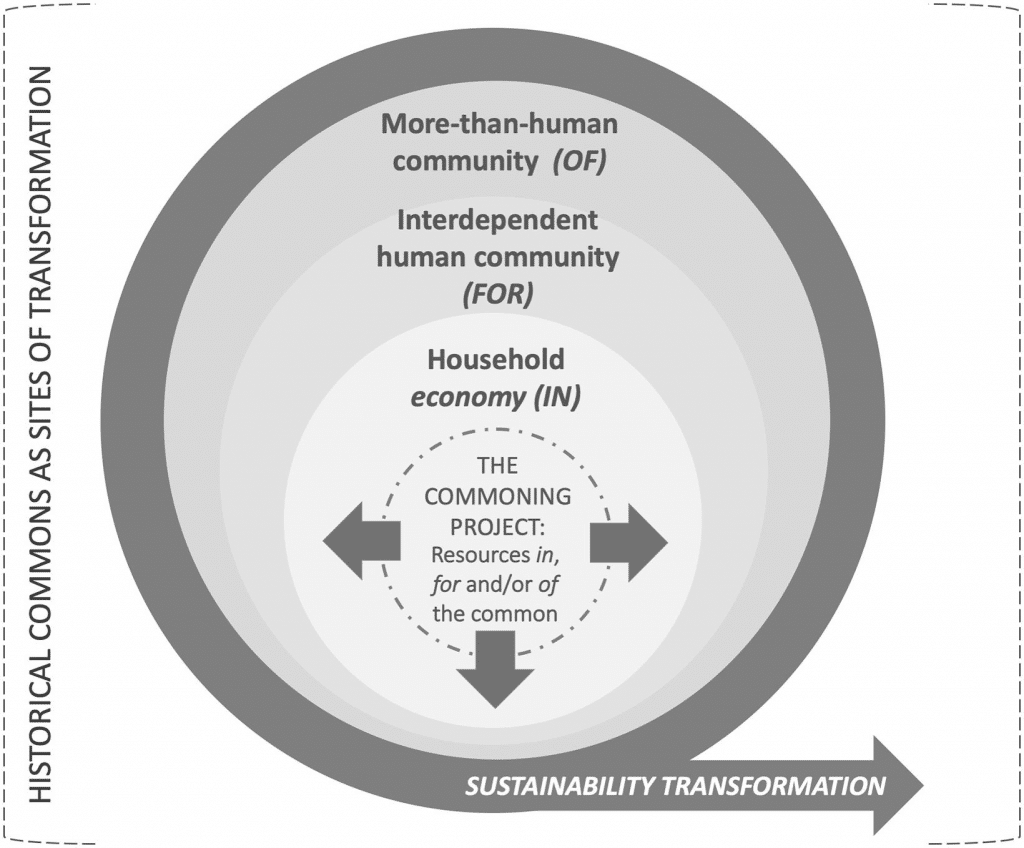
Marta Nieto Romero is an external PhD-candidate at the Rural Sociology Group of Wageningen University. From April 1, 2016, until March 31, 2019, she was appointed as Early Stage Researcher at the University of Aveiro at the research project Managing the Commons of the MSCA ITN programme SUSPLACE.
Abstract: The most critical question for sustainability research is how to facilitate transformative change. Yet, the academic scope of historical commons’ research is limited to institutional design and environmental sustainability. In this paper we argue for a transformative research agenda for historical commons focused on the study of processes building humans and more-than-human communities. We start by reviewing three commons schools, namely the mainstream and critical institutionalism and the community economies collective, and assess how these relate to sustainability and to theories on agency, community and change. We then define a research agenda taking a political and critical ontology of the community economies collective, and a phenomenological epistemology of critical institutionalism. We follow by characterising the underlying practices building humans and more-than human communities by showing three ideal stages of commoning found in our empirical cases in the north-western Iberian Peninsula (Spain and Portugal). Finally, we end by presenting a guiding framework for analysing processes of building communities in historical commons. In conclusion, we encourage further exploration of underlying practices that widen humans’ interdependency and inter-being and call for action-research projects and experimental methods that promote transformative encounters between humans and nature. Our framework is a first attempt to inspire researchers of historical commons to actively engage in unravelling the full potential of historical commons as sites of transformation.
Marta Nieto-Romero, Sandra Valente, Elisabete Figueiredo, Constanza Parra (2019) Historical commons as sites of transformation. A critical research agenda to study human and more-than-human communities, Geoforum, https://doi.org/10.1016/j.geoforum.2019.10.004

